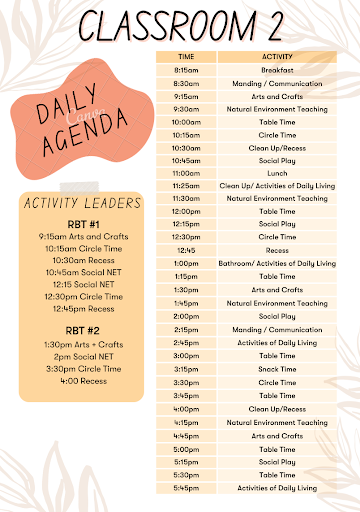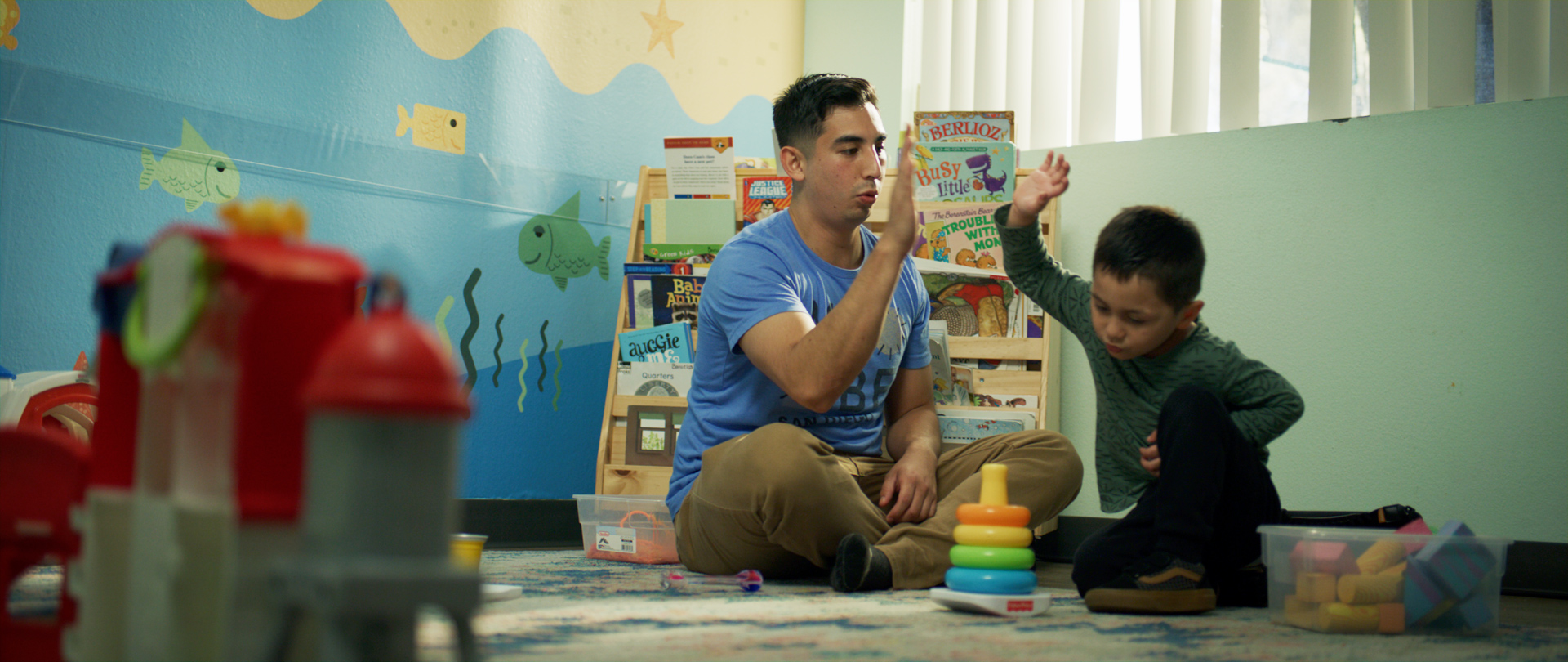What is ABA?
Applied Behavior Analysis (ABA) is a therapy based on the science of learning and behavior, and it helps us understand how behavior works, how behavior is affected by the environment, and how learning takes place. ABA helps us learn how to increase skills that you may want to teach your child like, asking for items or following directions. It can also help decrease harmful behaviors like tantrums, hitting, or biting.
ABA at MeBe starts with a series of initial assessments to gather information on your child’s strengths and challenges and where they land on meeting developmental milestones. After the assessments are complete, your clinical team will create a treatment plan that is specialized and individualized to meet your child’s needs. We combine research-based strategies within natural play-based settings to make learning and growing fun for your kiddos!
What is MeBe’s ABA School Readiness Program?
MeBe’s ABA School Readiness Program is designed for children ages two to five years old who have been diagnosed with ASD, or Autism Spectrum Disorder. This program takes place at each of our learning centers, though specific schedules and activities may vary across our locations.
Our goal is to build strong foundational skills for your toddler or preschool-aged child to be able to make progress towards achieving age-appropriate milestones in the areas of communication, social and emotional awareness, play, cognition, self-help, and physical development.
Within the MeBe ABA School Readiness program, children work directly with their assigned Registered Behavior Technician (RBT) and learn to follow individual and group instructions. Kids will also interact with their peers while adhering to a daily classroom agenda led by a Lead RBT.
Throughout the day, with the guidance of their RBT, the children engage in a variety of activities like circle time, recess, arts and crafts, turn-taking practice, group play time, group snack time, and structured table time.
To Summarize:
- The MeBe ABA School Readiness Program teaches children skills to prepare them for traditional school environment
- Takes place in a classroom setting with up to 6 children per class and a 1:1 child to RBT ratio
- Each classroom schedule at one of our learning centers is modeled after a typical preschool classroom
- Children are placed in classrooms with peers who have similar skill levels and/or play interests
What is Natural Environment Training (NET)?
Natural Environment Training or Teaching is an instructional strategy that uses a child’s natural environment or preferred environment as a way to teach foundational skills. In the MeBe Learning Centers, that often looks like play. Our trained clinical staff follow your child’s lead while they play with items and objects found in the classrooms, and use these as opportunities to teach important skills.
For example, while playing with a toy as simple as colorful wooden blocks, we can teach many skills. Some of which include, fine motor skills by building and balancing a block tower, identifying and labeling the blocks colors, and playing peek-a-boo behind the block tower to work on maintaining eye contact. These are all skills that are discretely taught during playtime.
Example Classroom Schedule

School Readiness at-Home Activities
There are a handful of activities that you can try at home to prepare your child for new learning environments like preschool or kindergarten. For children with autism, new environments and transitions can be very unsettling, so preparing them ahead of time for this coming change will improve their chances of successfully migrating to traditional schooling environments. Here are some school prep activities you can try at home:
- Start a routine
- Wake up at the same time every morning, as if you are waking up to go to school.
- Have a consistent morning routine, including getting dressed, brushing teeth, breakfast, etc.
- Set up structured activities for your child (e.g., play time with sensory toys, puzzles, reading).
- Set up free play time and have your child follow instructions to clean up their toys after they finish playing. Start by helping them clean up, then slowly let them clean up their toys on their own.
- Have a consistent bedtime routine, including starting the bed time routine at the same time every day. Bedtime routine activities include cleaning up toys, bath time, brushing teeth, putting on pajamas, and story.
- Create a visual schedule for your child to reference all of their daily activities.
- Expose them to school related items
- Backpacks, school supply, lunchbox, etc.
- Teach school readiness skills at home including how to follow 1-step directions
- go get a book, sit at the table, put away your items, etc.
- Teach your child to attend to stories being read to them and to activities while they are sitting at the table like puzzles, books, art, or sensory bins.
- Teach your child to transition between activities. Set visual timers for when it is time to transition from one activity to the next.
- Expose your child to different social settings with novel peers, like going to the park. If they play with peers in a novel setting, see if the peer’s parents are open to future playdates to increase interactions and promote friendships.
MeBe ABA Services
MeBe offers the ABA School Readiness Program in all of our MeBe Learning Center locations. Click here to find a MeBe Learning Center location near you.
If you’re ready to learn more about Applied Behavior Analysis, Speech and Language Pathology, Occupational Therapy, or Feeding Therapy services at MeBe, contact us today.
For helpful tips from the MeBe therapy team, check out @mebefamily on Instagram and Facebook, visit the MeBe Family YouTube channel, or watch the video below for more information about the ABA School Readiness Program at MeBe.

